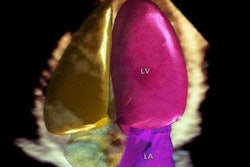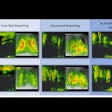Dear AuntMinnie Member,
As we go to press, the U.S. House of Representatives is preparing to take another vote in its quest to pass the Affordable Health Care Act (AHCA), the Republican Party's effort to repeal the Affordable Care Act.
Republican leaders are trying to whip up enough votes from moderate members of their party to pass the legislation and avoid an embarrassing setback like the one that occurred in March, when they were unable to secure enough votes from the conservative House Freedom Caucus to pass the bill.
The Freedom Caucus has lined up behind the current version of the legislation now that amendments have been added allowing insurance companies to charge different rates for individuals with pre-existing conditions compared to those extended to healthy people. But the compromise has moderate Republicans concerned that this could lead to skyrocketing premiums, essentially pricing the individuals with pre-existing conditions out of the insurance market.
Check out our latest news on this by clicking here. For up-to-the-minute updates, follow us on Twitter, at @AuntMinnie.
More on radiologists and AI
Fresh off the launch on Monday of our new Artificial Intelligence Community, we're pleased to bring you a new story that asks probing questions about how radiologists should respond to this rapidly growing new technology.
Radiologists can either hide their heads in the sand, or they can create their own future in response to artificial intelligence (AI), according to Ed Lyons, PhD, of the University of Manitoba in Winnipeg. Speaking at the recent Canadian Association of Radiologists annual meeting, Lyons said he believes radiologists need to step up and be engineers of their own destiny.
Read more about his thoughts by clicking here, or visit the community at ai.auntminnie.com.
Questions on NLST study population
The landmark National Lung Screening Trial (NLST) demonstrated that CT lung cancer screening resulted in a 20% mortality benefit for high-risk individuals such as long-term smokers. But a new study is questioning whether the NLST study population really reflected what might typically be seen in a real-world lung screening program -- suggesting that screening's benefit could be even higher. Read more by clicking here, or visit the community at ct.auntminnie.com.


















